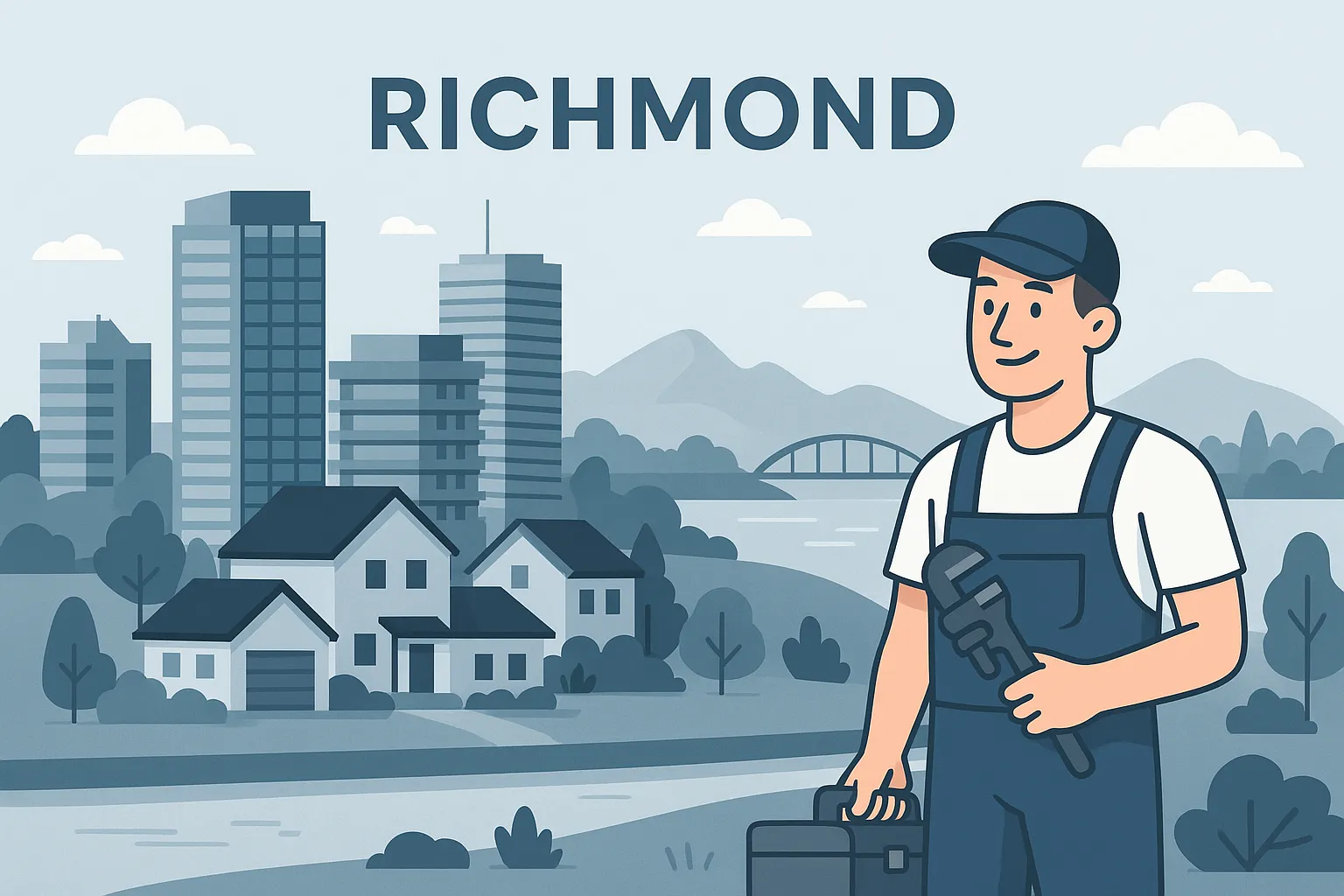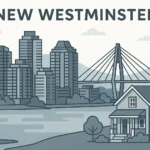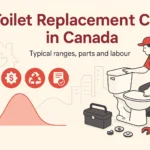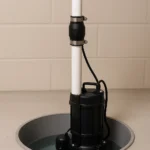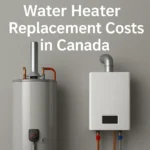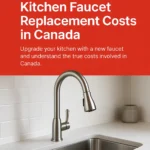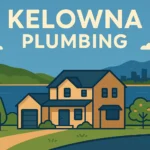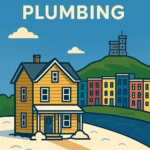Introduction
Richmond is British Columbia’s fourth-largest city, with a population of 209,937 (2021 Census). Built on islands at the mouth of the Fraser River, much of Richmond sits at or below sea level, protected by 49 km of dikes and 39 pump stations. That geography makes plumbing and drainage especially important for homeowners. This guide covers Richmond’s water quality, housing stock, common issues, seasonal concerns, costs, permits, and local regulations—plus real-world tips to help protect your home from water damage.
Water Source, Quality & Hardness
- Water source: Richmond’s tap water comes from Metro Vancouver’s Capilano, Seymour, and Coquitlam watersheds.
- Quality testing: The City of Richmond collects ~40 samples each week (over 2,000 annually). In 2023, all 2,074 samples passed testing for chlorine, turbidity, bacteria, and other safety metrics (City of Richmond Water Quality).
- Soft water: Richmond water is very soft, about 0.5–0.7 grains per gallon (Aquatell hardness map). This reduces scaling in appliances and fixtures, but can slightly increase corrosion risks for certain older metals.
- Water pressure: Most neighbourhoods experience consistent pressure. In low-lying areas, homes may rely more on pumps and drainage systems than elevation differences.
Housing Stock & Plumbing Factors
- Single-family homes: South and East Richmond have many older homes (built pre-1980s), often with cast iron or galvanized pipes that are now reaching end of life.
- Townhouses and strata complexes: Popular in West Cambie and City Centre; shared drainage and strata rules can complicate repairs.
- High-rise towers: Concentrated around Brighouse and Oval Village; depend on booster pumps and vertical stacks, where plumbing failures can affect many units.
- Floodplain geography: Virtually all Richmond homes are in flood-prone areas, making sump pumps, backwater valves, and reliable perimeter drainage essential.
Common Plumbing Issues in Richmond
- Clogged drains and sewer backups
With many mature trees, sewer laterals are prone to root intrusion. Low-lying land makes backups more likely during storms. - Leaky fixtures and toilets
A common issue across strata and single-family homes, especially where older valves and seals are still in place. - Basement and crawlspace flooding
Heavy rainfall combined with Richmond’s high water table can overwhelm perimeter drains and sump pumps. - Pipe corrosion in older homes
Pre-1980s houses may still contain galvanized steel or cast iron plumbing, both prone to internal buildup and leaks. - High-rise system failures
Booster pump or riser pipe issues in towers can leave entire floors without water or cause multi-unit water damage.
Seasonal & Flood Risk Considerations
- Fall/Winter: Heavy rains test the dike and pump system. Homeowners should clean gutters, inspect sump pumps, and test backwater valves.
- Spring: Fraser River freshet raises water levels, stressing flood protection systems and sometimes increasing groundwater seepage.
- Summer: Metro Vancouver watering restrictions apply citywide (Metro Vancouver Watering Regulations).
- Climate change: Rising sea levels and more extreme rainfall events mean homeowners must plan plumbing and drainage upgrades with future risks in mind.
Plumbing Costs in Richmond
Plumbing costs are consistent with Metro Vancouver standards. All service calls have a minimum charge of $249 before tax.
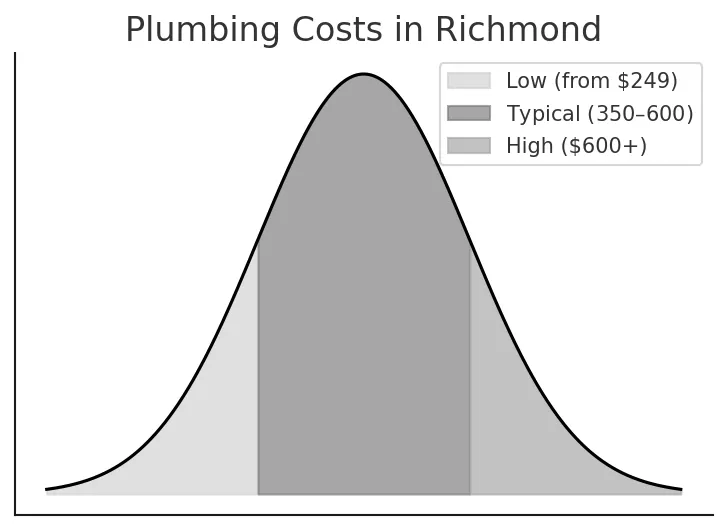
| Service | Low | Typical | High |
|---|---|---|---|
| Unclog a drain | $249 | $350 | $600+ |
| Replace a faucet | $249 | $400 | $800+ |
| Hot water tank replacement | $1,200 | $1,800 | $3,000+ |
| Emergency after-hours call | $400 | $600 | $1,000+ |
⚠️ Estimates disclaimer: Prices exclude after-hours premiums, permits, and materials.
Local Regulations & Permits
- Plumbing permits: Required for new installations, drainage work, and major replacements. Applications are processed through Richmond’s MyPermit portal.
- Backflow prevention: Mandatory for irrigation, fire sprinklers, and certain commercial setups.
- Contacts:
- Building Division enquiries: 604-276-4118 (City Permit Info)
- General City Hall: 6911 No. 3 Road, Richmond, BC V6Y 2C1
- For water quality or sewer issues, see City Water & Sewer Services.
Case Study: Flooding in East Richmond
A Richmond family living near the eastern floodplain experienced repeated crawlspace flooding during winter storms. Their sump pump could not keep up with the rising groundwater, and water damage became an annual repair cost. In 2022, they invested in a plumber-installed backwater valve and a higher-capacity sump pump system. During the atmospheric river later that year, their crawlspace stayed dry, saving them thousands of dollars in remediation. They now schedule annual sump pump servicing each fall to ensure the system is ready for the rainy season.
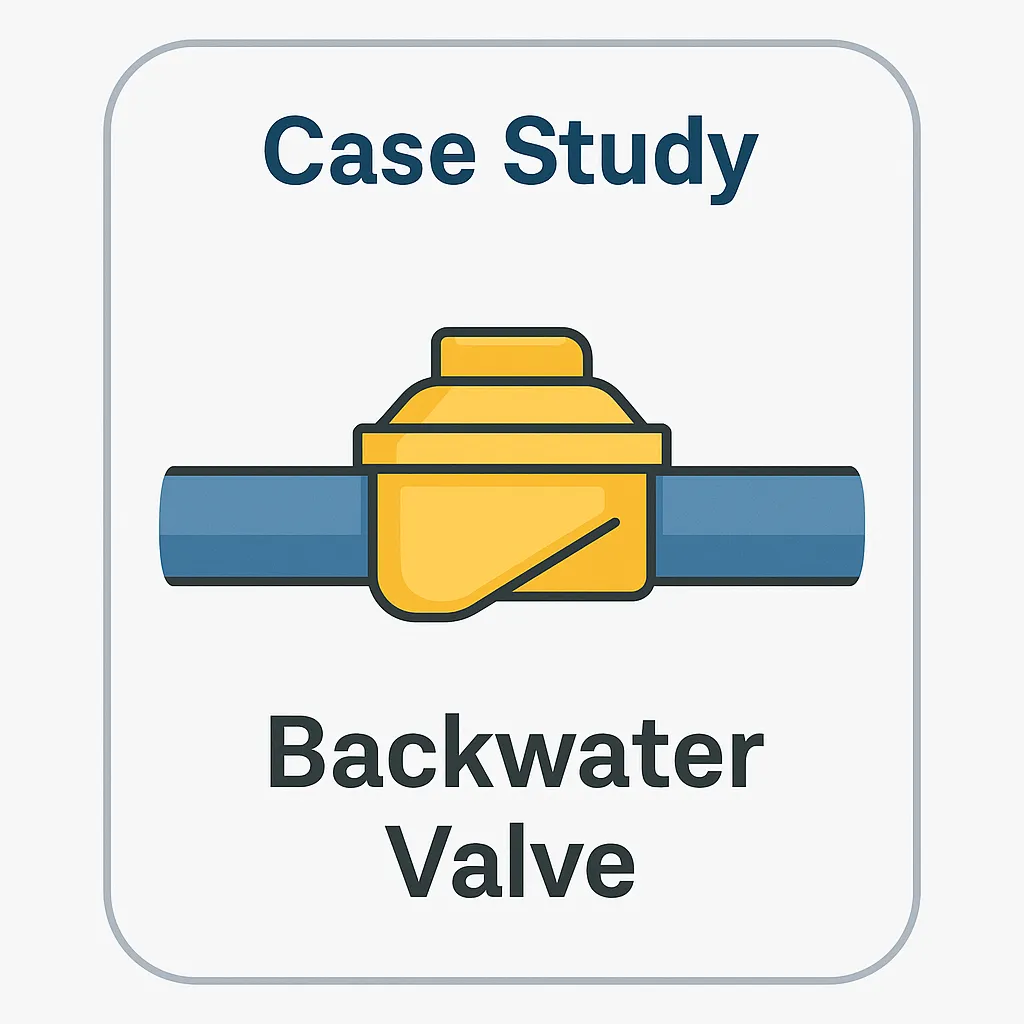
FAQs (Richmond-specific)
Is Richmond tap water safe to drink?
Yes. Over 2,000 water samples are tested each year, and in 2023 every sample passed.
Do I need a permit for plumbing work in Richmond?
Yes, for new installations, drainage modifications, or backflow devices. Minor fixture swaps usually do not require a permit.
How do I protect my home from flooding?
Install a sump pump and backwater valve, maintain gutters and drains, and schedule annual inspections.
Why are sewer backups common in Richmond?
Low-lying land and older clay or cast iron laterals make Richmond homes more vulnerable, especially during heavy rain.
Who do I call for water or sewer issues in Richmond?
For water quality or sewer service questions, contact the City at 604-276-4311 or see Richmond Water & Sewer.
Tips for Richmond Homeowners
- Test sump pumps and backwater valves every fall before heavy rains.
- Replace aging galvanized or cast iron pipes with copper or PEX.
- Avoid planting trees with invasive roots near sewer laterals.
- For strata residents, confirm booster pumps and drainage systems are serviced regularly.
- Use water-efficient fixtures to comply with summer restrictions.
Conclusion
Richmond’s low elevation, floodplain geography, and older housing stock make proactive plumbing care a necessity. From sump pump maintenance to backwater valve installation, prevention saves money and protects your home from costly water damage.
👉 Book a licensed plumber in Richmond today at unclogit.com or call 604-496-1661.

